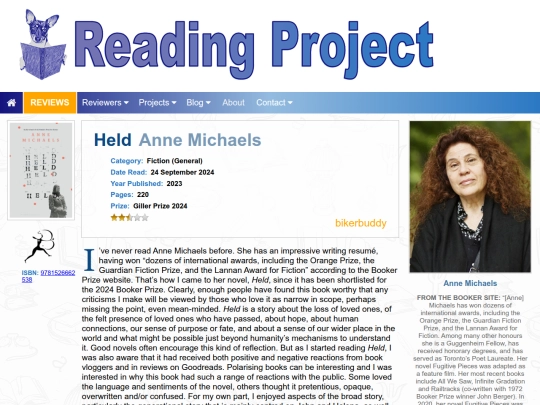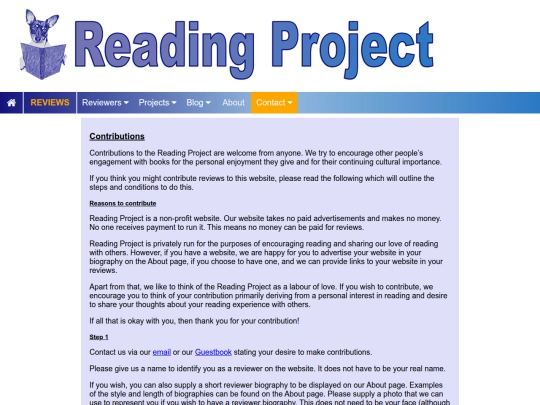The first Shortlisted Booker Prize novel is now reviewed and its one of my most negative reviews ever! Find out why I disliked Anne Michael's Held
4 likes
3 likes
4 likes
2 likes
Finally gave up the struggle with the email company. It's been cancelled. Menus on the site have been changed. Our email address is now readingprojectwebsite@gmail.com
6 likes
5 likes
New Review: A Closed and Common Orbit (Wayfarers #2) by Becky Chambers
2 likes
Forget what I said about a new email. It's explained in the latest blog. We're back to the old email address now: readingproject@aapt.net.au
2 likes
2 likes
 nohappynonsense
1 year ago
nohappynonsense
1 year ago
readingproject@nohappynonsense.net still available but the price has doubled
2 likes
 skep
1 year ago
skep
1 year ago
readingproject@skep.place is still available but the price has also doubled (wait what's two times free)
3 likes
 readingproject
1 year ago
readingproject
1 year ago
Thanks. Will keep your generous offers in mind. Paid the man for my same old email address last night and then my mail out wouldn’t work with it. Switched the mail out to the gmail address and it worked, even though it says you shouldn’t use gmail. So why did I bother paying. I really am very grumpy right now!
2 likes
4 likes














































































































































































































Oof, I'm sorry, I had to give readingproject@skep.place to a nice older woman out in Michigan. I can still get you readingproject2@skep.place though.
*sigh*
The e-mail thing sucks. A few years ago, I had a problem with a web host when a free forum host that I was using decided that they wanted to close down, and the one I went to was unhelpful with setting the forum up. I don't do forums now because it's a pain keeping everything on the back end of it up to date and running - when I'd finished sorting one issue out, another popped up in it's place.